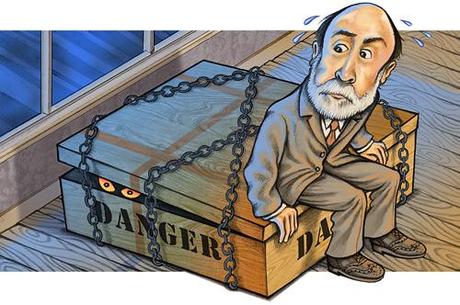At the beginning of the year, I was asked whether Europe’s fiscal crisis was over. Showing deep thought and characteristic maturity, my response was “HAHAHAHAHAHAHAHAHA, are you ;@($&^#’% kidding me?”
But I then shared specific reasons for pessimism, including the fact that many European nations had the wrong response to the fiscal crisis.  With a few exceptions (such as the Baltic nations), European governments used the crisis to impose big tax hikes, includinghigher income tax rates and harsher VAT rates.
With a few exceptions (such as the Baltic nations), European governments used the crisis to impose big tax hikes, includinghigher income tax rates and harsher VAT rates.
Combined with the fact that Europe’s demographic outlook is rather grim, you can understand why I’m not brimming with hope for the continent. And I’ve shared specific dismal data for nations such as Portugal, France, Greece, Italy, Poland, Spain, Ireland, and theUnited Kingdom.
But one thing I’ve largely overlooked is the degree to which the European Central Bank may be creating an unsustainable bubble in Europe’s financial markets. I warned about using bad monetary policy to subsidize bad fiscal policy, but only once in 2011 and once in 2012.
Check out this entertaining – but worrisome – video from David McWilliams and you’ll understand why this issue demands more attention.
Recommended
I’ve openly argued that the euro is not the reason that many European nations got in trouble, but it appears that Europe’s political elite may be using the euro to make a bad situation even worse.
And to add insult to injury, the narrator is probably right that we’ll get the wrong outcome when this house of cards comes tumbling down. Instead of decentralization and smaller government, we’ll get an expanded layer of government at the European level.
Or, as I call it, Germany’s dark vision for Europe.
That’s Mitchell’s Law on steroids.
P.S. Here’s a video on the five lessons America should learn from the European crisis.
P.P.S. On a lighter note, the mess in Europe has generated some amusing videos (here, here, and here), as well as a very funny set of maps.
P.P.P.S. If all this sounds familiar, that may be because the Federal Reserve in the United States could be making the same mistakes as the European Central Bank.  I don’t pretend to know when and how the Fed’s easy-money policy will turn out, but I’m not overly optimistic about the final outcome. As Thomas Sowell has sagely observed, “We all make mistakes. But we don’t all have the enormous and growing power of the Federal Reserve System… In the hundred years before there was a Federal Reserve System, inflation was less than half of what it became in the hundred years after the Fed was founded.”
I don’t pretend to know when and how the Fed’s easy-money policy will turn out, but I’m not overly optimistic about the final outcome. As Thomas Sowell has sagely observed, “We all make mistakes. But we don’t all have the enormous and growing power of the Federal Reserve System… In the hundred years before there was a Federal Reserve System, inflation was less than half of what it became in the hundred years after the Fed was founded.”


